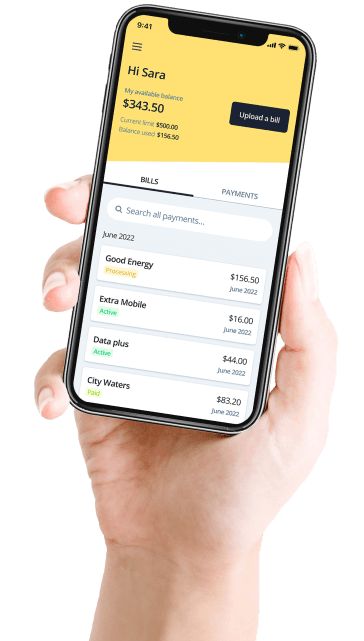From buying a car to your first credit card, your credit score plays a big part. This guide shares everything you need to know about credit scores.
Whether you’ve decided to whip your finances into shape or are thinking about making a big financial decision, credit plays a significant role in your success. Depending on how you intend to use it, credit can give a person the freedom to grow their wealth over time.
When it comes to understanding credit, it’s likely you would have come across the term ‘credit score’. But what exactly is a credit score and should you know yours? That’s why we created this detailed guide to help you understand how credit scores work and what you need to do to make sure yours stays in the green.
What are Credit Scores?
A credit score is a number between 300 and 850, which tells a person or financial institution how well you manage money. Your credit score number is based on parts of your financial history, like whether you pay your bills on time, the amount of personal debt you currently have and if you’ve ever been rejected on a credit application.
Credit scores are broken up into five categories, where the higher your score, the more financially attractive you appear. They are:
- Excellent: 800 - 850
- Very Good: 740 - 799
- Good: 670 - 739
- Fair: 580 - 669
- Very Poor: Below 580
What are Credit Reports?
In addition to having a credit score, every person over the age of eighteen will also have a credit report. Your credit report is a total record of your past debts, credit applications, repaid or unrepaid loans within the last five years. More specifically, they detail:
- The date you opened an account, how long you’ve had them and their types
- The credit providers or lenders you’ve enquired with in the past
- Any overdue or unpaid debts
- Your current credit limit
A lender or financial institution can access this information if you ever apply for a credit card, like a credit card or home loan. They do this to help them assess your creditworthiness and the likelihood of you defaulting on repayments.
Credit Scores vs FICO vs VantageScore
Assessing a person’s creditworthiness is done using various score modeling techniques. In addition to ‘credit scores’ the results may also be referred to as FICO scores or VantageScores, but these terms are also often used interchangeably.
The system to determine a FICO score was developed in 1989 where the company uses proprietary systems to produce scores. FICO scores generally range between 300 to 850, where scores between 690 to 719 are considered good credit. Over 90% of lenders use FICO scores.
VantageScore was introduced in 2006 and uses a similar method by grouping a person’s credit information into six categories whereas FICO uses five. They also differ in their number ranges, the length of credit history required, the types of credit inquiries a person has made and the trending data a person may have developed over time.
What is a credit reporting agency?
A credit reporting agency or bureau is responsible for collecting and distributing credit information, which when compiled, creates a person’s credit score. There are three major credit reporting agencies in Australia who lenders may choose to work with, Equifax, Experian and TransUnion, colloquially known as ‘The Big Three’.
Equifax Credit Bureau
Equifax is one of the largest credit reporting agencies in the U.S, with credit data from more than 820 million consumers and 91 million businesses across 24 countries. You can order a copy of your credit report for free in 10 days if you haven’t ordered one in the previous year.
Experian Credit Bureau
While its roots may have started in Ireland back in 1996, Experian has since expanded all over the world. With access to more than 1 billion records, Experian are experts in defining credit scores, so credit providers can make appropriate decisions regarding a customer’s request for credit.
TransUnion Credit Bureau
TransUnion has been around since 1968 and has since collected information on over 1 billion consumers, including more than 65,000 businesses. By tapping into both credit and public data information, TransUnion provides lenders with expert information to help them make better informed decisions about credit applicants.
How to check your credit score?
There’s no hard and fast rule when it comes to checking your credit score, but you should be aiming to check in on your credit file at least once a year. While you can request a free copy of your credit history using one of the above credit reporting agencies, there are more familiar alternatives.
Outside of credit bureaus, you can access a copy of your credit file at:
- Credit Karma
- Nerd Wallet
- Credit Sesame
How to Improve and Build Credit?
As you’ve probably gathered by now, your ability to access credit plays a big part in measuring your financial health. If you come to find your credit score isn’t up to scratch, don’t worry, your number isn’t set in stone. In fact, with a few easy tips and tricks, you can improve your credit score in no time!
Make Payments on Time
One easy way to improve your credit score is to make any upcoming payments on time, like your bills. This shows credit agencies you prioritise paying essential expenses and don’t attract late fees or interest. After all, nothing says financial responsibility like paid bills!
Optimize Credit Utilization
While it’s best to pay off your credit card balance in full every month to avoid interest charges, this isn’t feasible for every budget. In this case, aim to lower your card’s total balance to under 30% of the total credit limit. From there, you can shoot for below 10% and eventually clear your balance completely.
Limit Your Credit Pulls
If you’ve been rejected on a credit application in the past because of your credit score, now is the time to stop making any more. Every time you submit a credit application to a provider, it is recorded on your file, regardless of whether it was approved or rejected.
Managing Cash Flow and Debts
Our last tip for practising positive financial habits for a better credit score is to better manage your cash flow. Cutting back on certain spending might have felt like your only option to free up your budget in the past. But thanks to the launch of new fintechs, like Deferit, you don’t have to sacrifice your lifestyle to stay on top of your finances.
Deferit is a budgeting app that splits bills into 4 installments, making them easier to manage. Meanwhile, Deferit pays your biller upfront and on time, helping you avoid late fees. The platform charges no interest and is full of flexibility, allowing users to reschedule payment dates for free. And with an app like Deferit on your side, you’ll have more space in your budget to pay off debt.
Want to give Deferit a try? Download the app and get your first bill paid with Deferit today!








